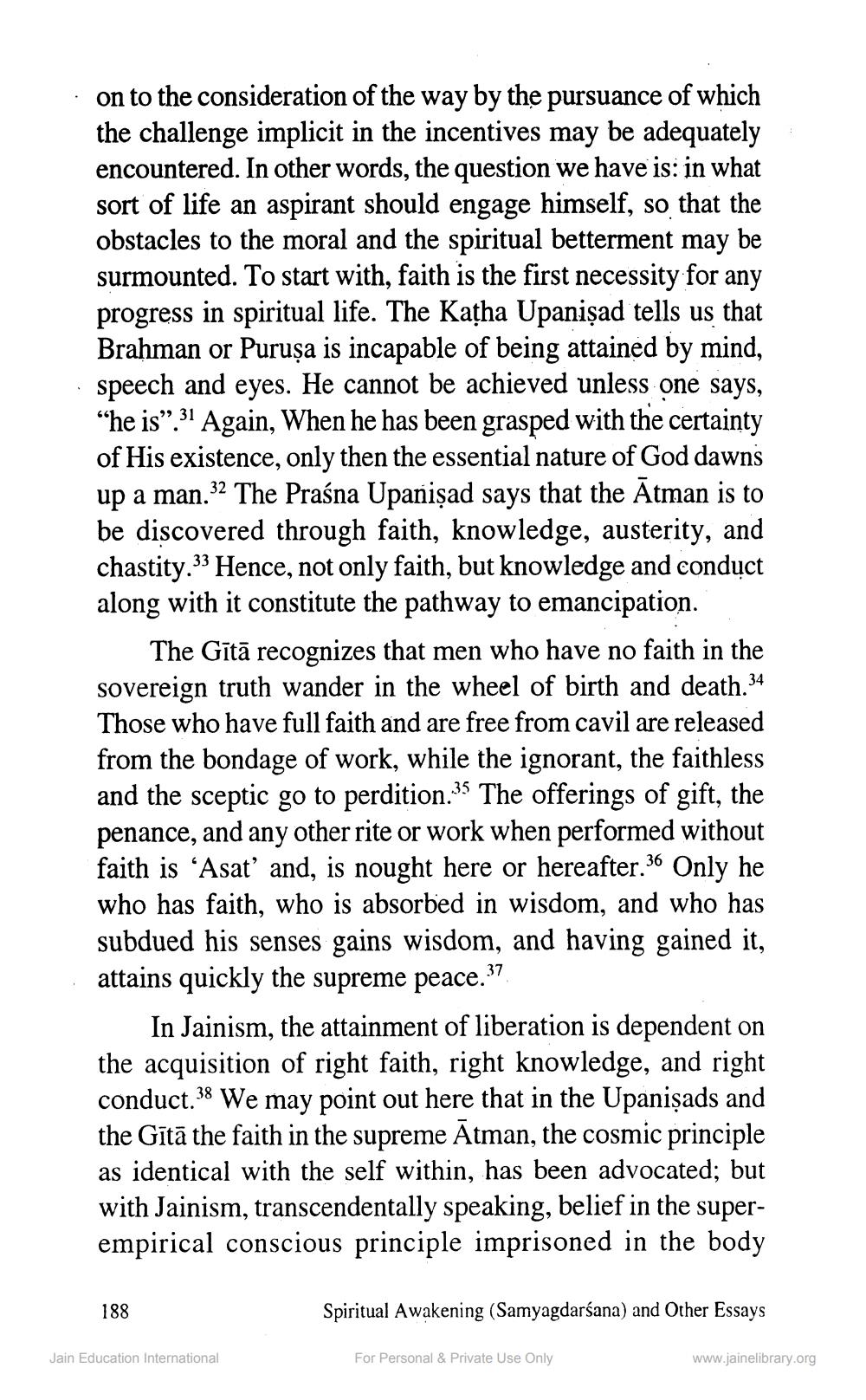________________
on to the consideration of the way by the pursuance of which the challenge implicit in the incentives may be adequately encountered. In other words, the question we have is: in what sort of life an aspirant should engage himself, so that the obstacles to the moral and the spiritual betterment may be surmounted. To start with, faith is the first necessity for any progress in spiritual life. The Katha Upanișad tells us that Brahman or Purusa is incapable of being attained by mind, speech and eyes. He cannot be achieved unless one says, “he is”. 31 Again, When he has been grasped with the certainty of His existence, only then the essential nature of God dawns up a man.32 The Praśna Upanişad says that the Atman is to be discovered through faith, knowledge, austerity, and chastity.33 Hence, not only faith, but knowledge and conduct along with it constitute the pathway to emancipation.
The Gītā recognizes that men who have no faith in the sovereign truth wander in the wheel of birth and death.34 Those who have full faith and are free from cavil are released from the bondage of work, while the ignorant, the faithless and the sceptic go to perdition.35 The offerings of gift, the penance, and any other rite or work when performed without faith is ‘Asat' and, is nought here or hereafter.36 Only he who has faith, who is absorbed in wisdom, and who has subdued his senses gains wisdom, and having gained it, attains quickly the supreme peace. 57
In Jainism, the attainment of liberation is dependent on the acquisition of right faith, right knowledge, and right conduct. 38 We may point out here that in the Upanişads and the Gītā the faith in the supreme Ātman, the cosmic principle as identical with the self within, has been advocated; but with Jainism, transcendentally speaking, belief in the superempirical conscious principle imprisoned in the body
188
Spiritual Awakening (Samyagdarśana) and Other Essays
Jain Education International
For Personal & Private Use Only
www.jainelibrary.org




